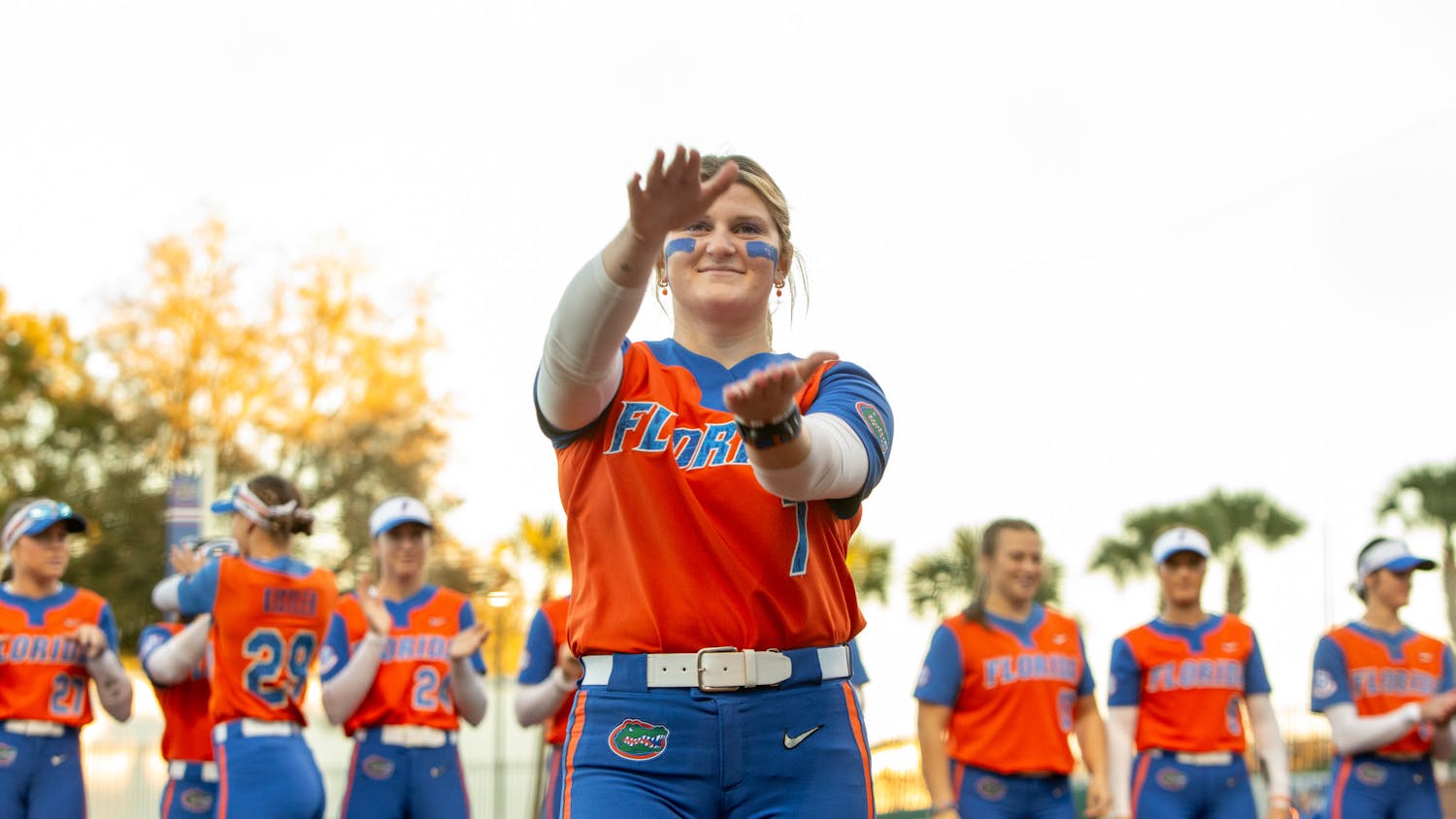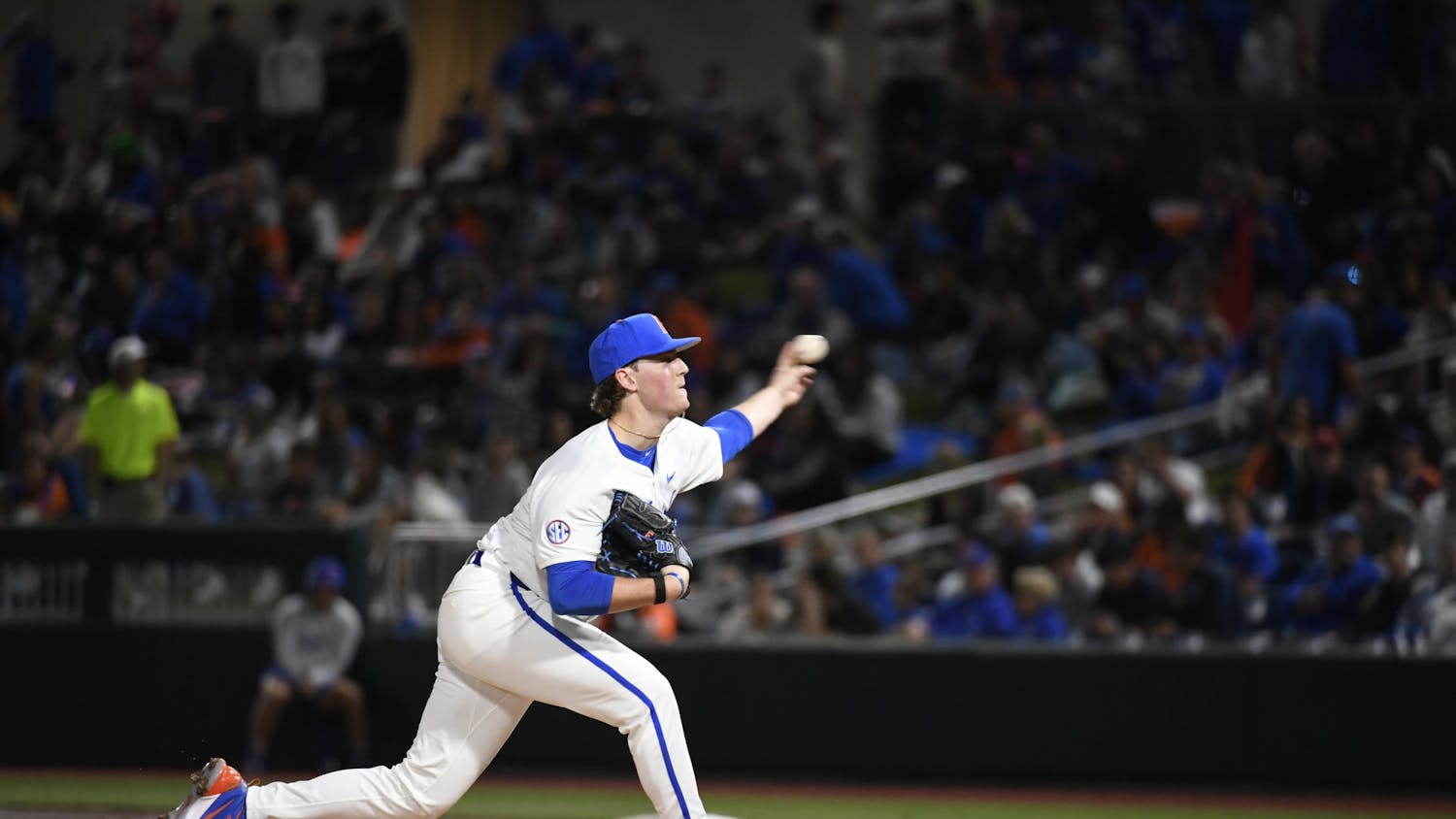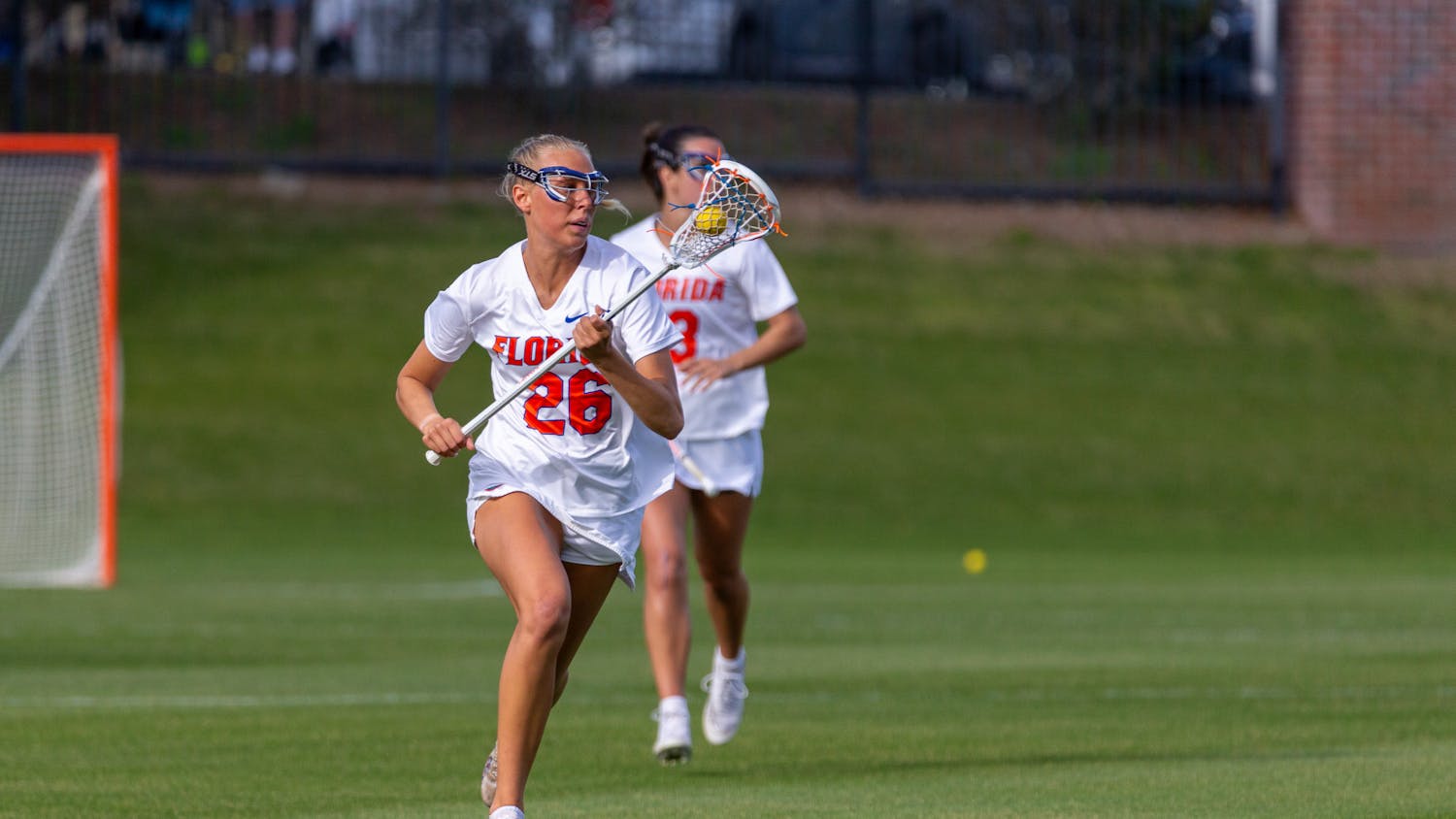Editor's Note: This is the second story in a three-part series on students who completed military service in the Middle East. Part Three will run Thursday.
Military service runs in Jennifer Davidson's family.
Her father was in the Air Force. He served his country with pride, and he passed that pride down to her.
And even though she decided not to join ROTC when she came to UF, she knew she wanted to serve too. So she enlisted in the Air National Guard.
"Being somewhat patriotic, I just thought, 'Someone's gotta do it,'" the senior integrative biology major said and grinned.
Davidson, a staff sergeant, is freshly back from her first tour of duty in Iraq. She left for basic training in September 2006 and returned from the Middle East in May. Now that she has returned to her semi-civilian student life, it's easy for her to forget she ever left the country.
"It took about 10 seconds of me being back to feel like it was just a dream, like it never happened," she said. "It's so different than being here."
Davidson knew she was going to be called to service eventually. She knew there was no getting out of it. She felt bad for others in her unit who had to leave behind jobs that supported their families.
Was she nervous before she got there? Of course, she said. Her friends were concerned. Her family was worried. But she said her family worries when she goes to the Florida Keys, and she expected them to worry when she left for Iraq.
The Journey and The Job
She'll never forget the bus ride to the base. The desert sped by as the bus speakers blared "Move Along" by the All-American Rejects.
"Honestly, it reminded me a lot of 'Forrest Gump,'" she said. "The scene where they are having the barbecue in Vietnam, everyone was just singing and laughing and having a good time. It was weird."
Davidson quickly settled into her new routine. Her main job was to drive a convoy from base to base delivering construction supplies. She drove to Tikrit, which is Saddam Hussein's hometown, Mosul, Kirkuk, Baghdad and "all the little places in between."
Her unit would throw water and muffins to the villagers. The soldiers could no longer give them "Meal, Ready-to-Eat," because the plastic can be turned into bombs. Families from the U.S. would send footballs and soccer balls to throw to kids.
The Mean Streets
Davidson knew how dangerous it was to interact with the public.
As a driver, Davidson knew to never stop the vehicle. It would be standard procedure for her to run even a child over.
She had learned that stopping made her and her unit sitting ducks, especially if insurgents could control where she stopped the convoy.
She recounted the experience of a fellow soldier who witnessed a group of soldiers make the mistake of interacting with the public.
There was a group of small children that played every day at a bus stop, she said. Often, soldiers would stop and play with the children. The "bad guys" watched the interaction enough to know it was a good target and planted a bomb underneath where the children normally gathered. The blast killed several soldiers and all the children there that day, she said.
"Less interaction is better," Davidson said.
Fragile Trust
The same applied to the Third Country Nationals, civilians from other countries working on the bases to send money home to their families.
She said that developing a relationship with them can put both the soldier and the worker in danger. She said it's hard to know who you can trust.
But that didn't mean the soldiers didn't feel compassion for the TCNs.
No more than 20 minutes after she had finished breakfast one morning, a fuel truck was blown up right outside the kitchen. Davidson said she didn't know what the investigation found about the blast.
One TCN was killed in the blast, and the soldiers collected money to send back to his family.
"I think it's a wide-held belief that we are over there trying to make the world a better place," Davidson said. "Whether we are or not is not for me to say. But I think that generosity shows the American spirit of protecting the weak and wanting good to prevail."
The Good Times
Davidson celebrated two UF national championships while in Iraq. She watched the game with 30 or 40 other fans in lawn chairs in front of a big-screen TV. One soldier, an Ohio State University fan, attached an Ohio State flag to a Hesco barrier, a type of shield used for protecting against shrapnel, in front of his bed.
When Ohio State lost, the Gators fans made him fly his flag at half-mast.
"That's part of how you get by day to day," she said. "You rely on the people around you to pick you up when you can't do it."
She remembers time spent bonding with her fellow Gators-loving unit: daring someone to chug a bottle of Tabasco sauce, jumping into the retention pond when it was 60 degrees outside, watching the Gators games.
Sometimes, the good times were followed by scary ones. Davidson's unit had a small gathering on New Year's Eve. But the next day, the base was attacked with mortars early in the morning. She spent the morning hiding in a bunker.
But after months of a completely different lifestyle in Iraq, Davidson has returned to UF to finish her degree.
"I feel fulfilled," she said. "I like to help people, and I really feel like nothing we did made anything worse. I'm in the business of building things, not blowing them up."






